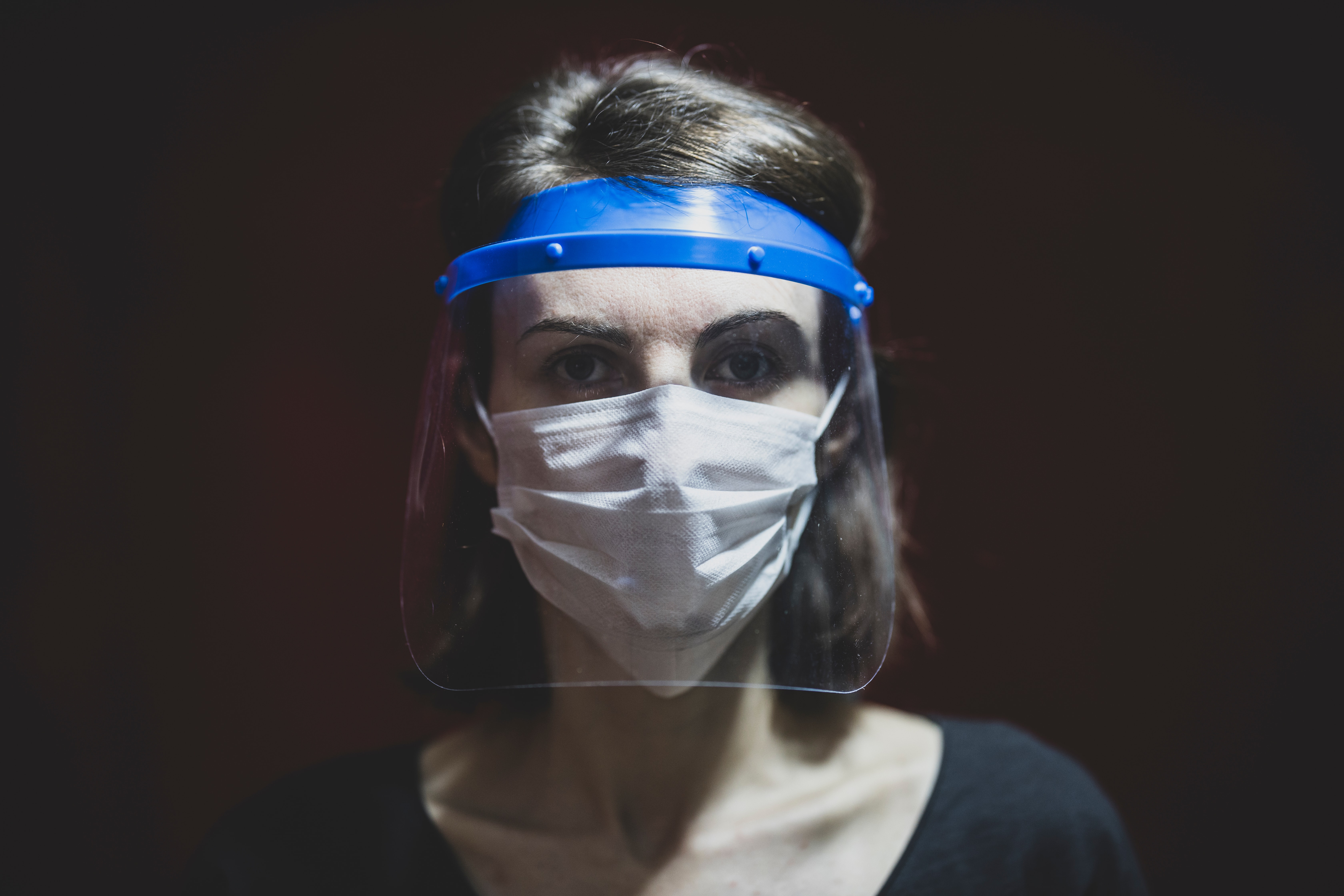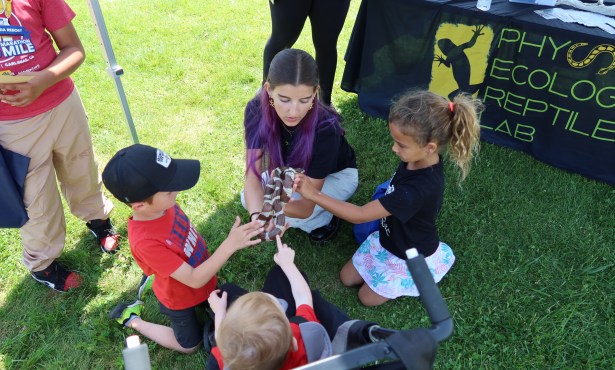Have COVID Conditions Affected Trash?
Recycling, Reuse, and the COVID Economy Kept a Lid on Waste

From medical respirators to plastic takeout containers, medical professionals and city leaders are working to mitigate the waste created by COVID-19 in Santa Barbara County.
At the Cottage hospitals, 3,400 N95 respirators have been sterilized onsite and are being stored for reuse if needed in the future, according to Maria Zate, manager of public relations at Cottage Health. “Medical waste is handled according to Centers for Disease Control guidelines. Most personal protective equipment [PPE] must be discarded, but plastic shields and respirators can be sterilized and reused,” Zate said. Cottage has also recycled nearly half of the pulse oximeters that it purchased, and it has recycling and composting programs in place to divert waste from landfills.
Get the top stories in your inbox by signing up for our daily newsletter, Indy Today.
Since the start of 2020, Cottage has diverted an average of 37 percent of its waste from landfills each month. “Overall waste has not increased,” Zate said, including from the protective gear needed to protect those working around infected patients. “During our COVID-19 response, the schedule for non-essential procedures has been reduced intermittently as we monitor metrics for community transmission and supplies. This shift has offset additional PPE use related to COVID precautions.”
Elsewhere in the city, local authorities in waste management and conservation are dealing with an uptick in littering and illegal dumping of takeout containers and other trash.

The city has installed 44 more trash and recycling containers by the waterfront to manage trashcan overflow, according to Bryan Latchford, public information officer for the City of Santa Barbara’s sustainability and resilience program. The city has also added roughly 600 signs across the city that instruct people to avoid throwing away their trash at overflowing containers.
“Putting it near or around the containers is actually just dumping and littering,” Latchford said, explaining that trashcan overflow allows birds to remove trash that then ends up on the beach due to wind.
Kathi King, director of outreach and education at the Community Environmental Council (CEC), believes the increased reliance on plastic takeout containers in the food industry poses a larger problem beyond trashcan overflow.
“The plastic industry is looking for growth,” King said. As the petroleum industry struggles in other areas like energy and transportation, plastic — an oil product — has become an opportunity for growth and profit, she said.
“They saw the pandemic as a wedge issue where they could spread misinformation about the need to increase our dependence on single-use plastic, which has proven to not be true or necessary,” King said. The CDC stated several months ago that person-to-person transmission is a far greater concern than surface-to-person spread.
“Even when you’re dining in, [restaurants] are still relying mostly on disposables when the science is saying that they don’t need to be doing that,” King said, suggesting that economic strain and short-staffed crews may play a role. “At the coffee shop where I go, I recently said, ‘When are you going back to for-here mugs?’ And the answer that I got was, ‘Well, then I have to hire a dishwasher back.’”
In the grand scheme of things, however, the increases in specific kinds of waste created by COVID, whether it’s takeout or medical gear, are incredibly small in proportion to overall waste production. The uptick in plastic waste is canceled out by the fact that people are consuming and wasting a lot less in other areas, said Carlyle Johnston, project leader at the county’s Resource Recovery and Waste Management Division.
Johnston also noted that waste production reflects the state of economy — the 2008 recession saw a decrease in waste because people were spending and consuming much less, and COVID-19 is having the same effect.
Latchford agreed that COVID hasn’t affected waste production: “It hasn’t impacted the system at all because it’s so infinitesimal.”
At the Santa Barbara Independent, our staff is working around the clock to cover every aspect of this crisis — sorting truth from rumor. Our reporters and editors are asking the tough questions of our public health officials and spreading the word about how we can all help one another. The community needs us — now more than ever — and we need you in order to keep doing the important work we do. Support the Independent by making a direct contribution or with a subscription to Indy+.




You must be logged in to post a comment.